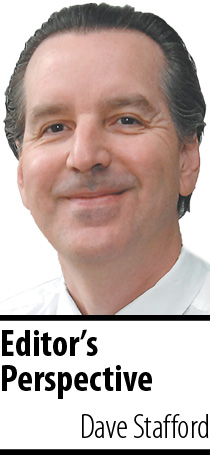Subscriber Benefit
As a subscriber you can listen to articles at work, in the car, or while you work out. Subscribe Now The Indiana Lawyer editorial staff has been covering Indiana’s voter suppression laws and how they are holding up to court challenges. So far, so good for several statutes, which is awful news for democracy and the right to vote.
The Indiana Lawyer editorial staff has been covering Indiana’s voter suppression laws and how they are holding up to court challenges. So far, so good for several statutes, which is awful news for democracy and the right to vote.
The law of this election season is chaos and failures of leadership. In this space, I recently called out Gov. Eric Holcomb, Secretary of State Connie Lawson and their Statehouse friends for failing to make the good-government call to lift Indiana’s legal restrictions on absentee voting.
Why Holcomb and company don’t care about willfully endangering Hoosier voters by making them stand in long lines during a pandemic on Nov. 3 — but they did care enough to lift vote-by-mail restrictions during the primary election — is a question they cannot logically answer. There’s still time for Holcomb to lift those restrictions for the health of all Hoosier voters. I remain hopeful that he’ll come to his senses, but time for an epiphany is scarce.
History teaches us if we are willing to learn and guides us if we are willing to do better. IL columnist Ahmed Young on this page examines how the law historically has been used as a tool to either expand or restrict not just how and when elections happen, but who may vote. Young’s analysis is far more thoughtful and considered than this yammering rant, and he presents a thorough and compelling case for a hard look at our election laws, and more importantly, why they’re on the books.
Indiana has a history of brazen election chicanery. Our polls are open on Election Day for fewer hours than any other state. We make it exceedingly difficult, even during an infernal pandemic, to vote by mail. And just last year, Holcomb signed a law unique in the nation that barred citizens from going to court to extend voting hours due to irregularities at polling places. A federal judge dutifully threw that repugnant law in the trash, but it symbolizes what our elected leaders think of voters. Our voting rates are among the nation’s lowest, and our lawmakers seem to like it that way.
But antidemocratic instincts are not just a Hoosier tradition. The United States is not a democracy, as we know from a couple of recent presidential elections. The late Indiana Sen. Birch Bayh saw a need 50 years ago to chuck the plantation-era Electoral College. IL senior reporter Marilyn Odendahl recently covered for our daily website a program sponsored by the IU McKinney School of Law on Bayh’s proposed constitutional amendment to abolish the EC. Bayh came closer than anyone in history to turning America into the sort of place where the president is the person who gets the most votes.
“Birch Bayh was a farmer of democracy,” author and journalist Jesse Wegman told the McKinney forum. “… Bayh’s conviction was profound and his inability to achieve a national popular vote pained him deeply for the rest of his life.”
The Rev. Martin Luther King Jr. first said he believed “the arc of the moral universe is long, but it bends toward justice” in 1958. Just a few years earlier, southern writer William Faulkner turned one of his most famous lines: “The past is never dead. It’s not even past.” In 2020, it feels like maybe they both were right.•
• Dave Stafford — [email protected] — is editor of Indiana Lawyer. Opinions expressed are those of the author.
Please enable JavaScript to view this content.
